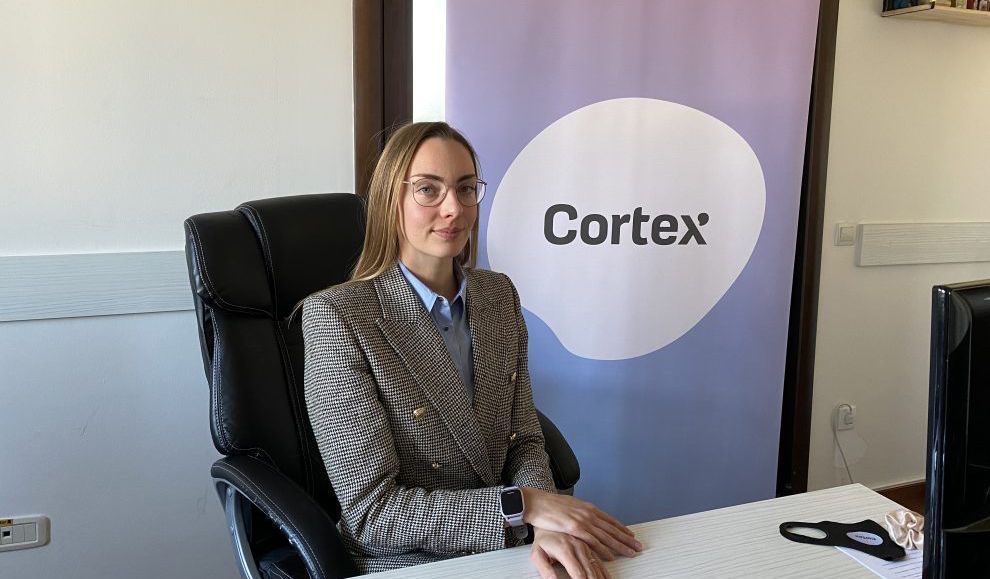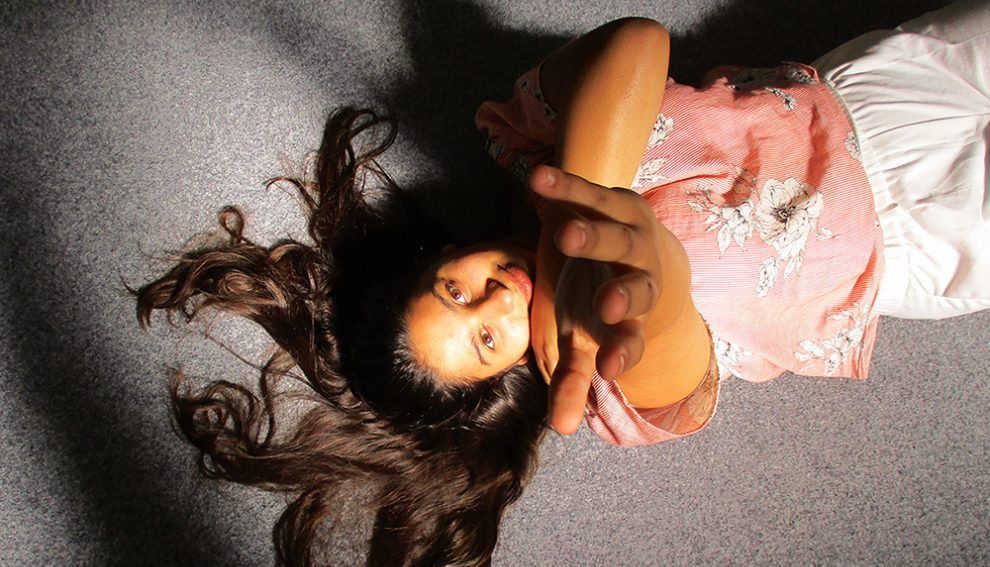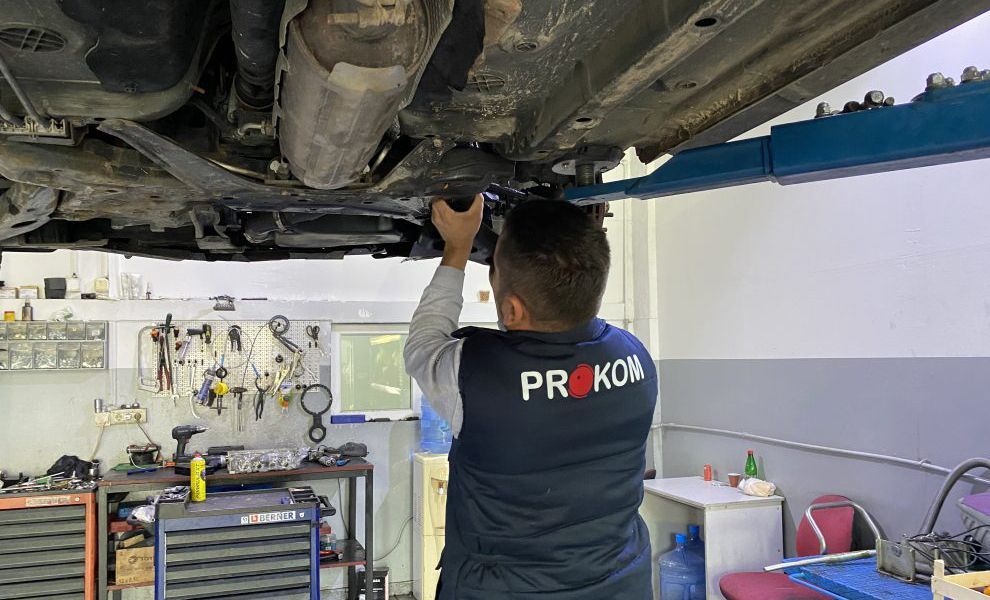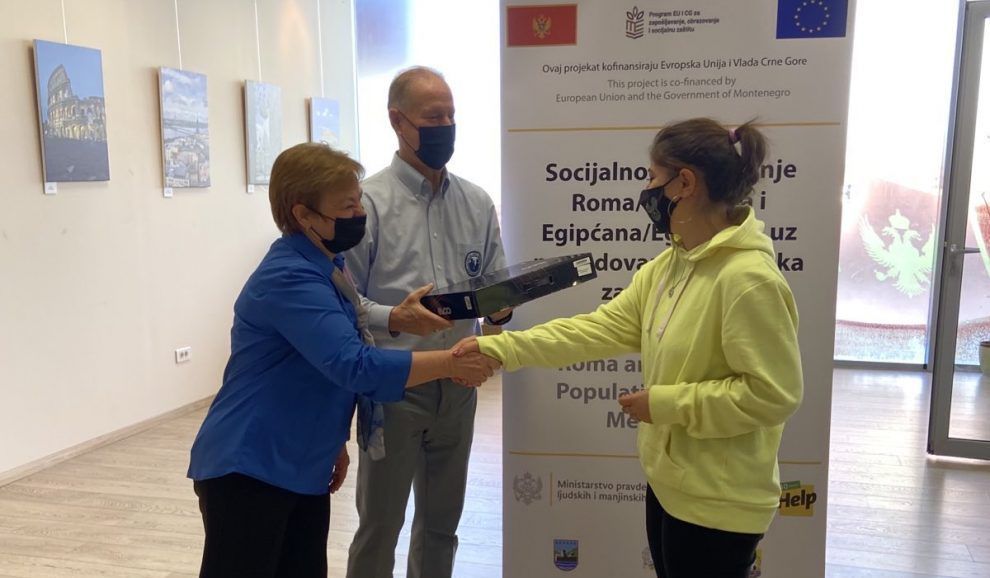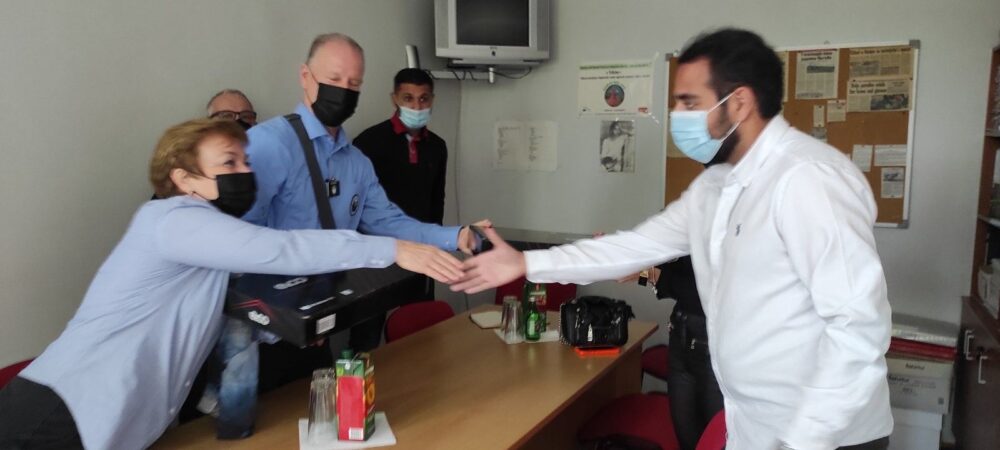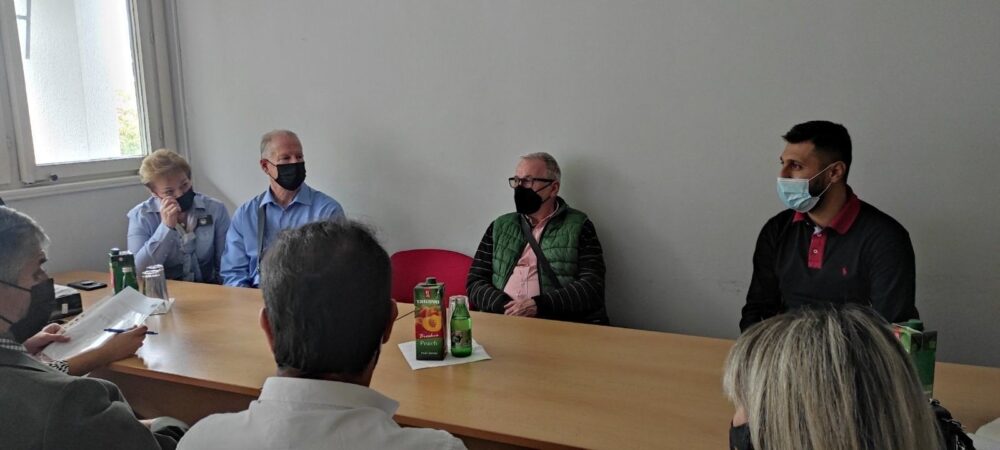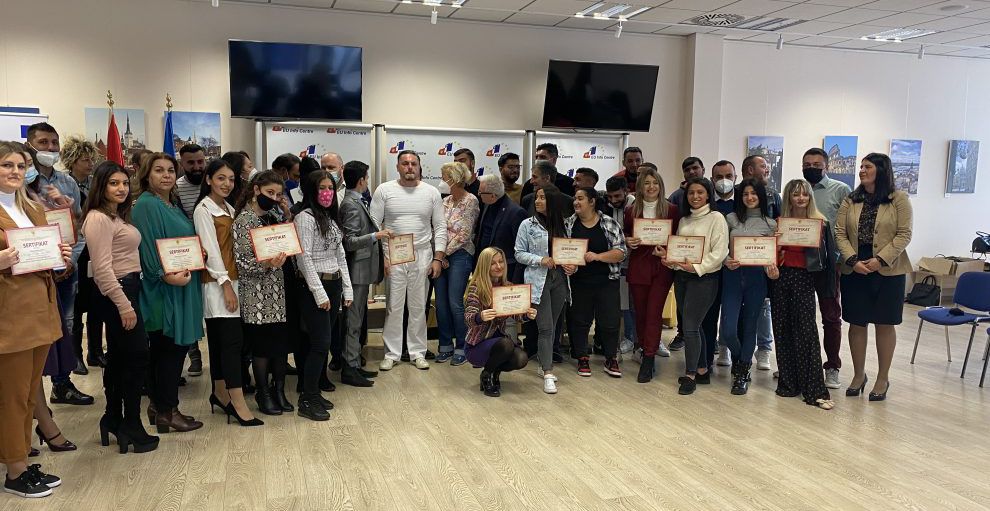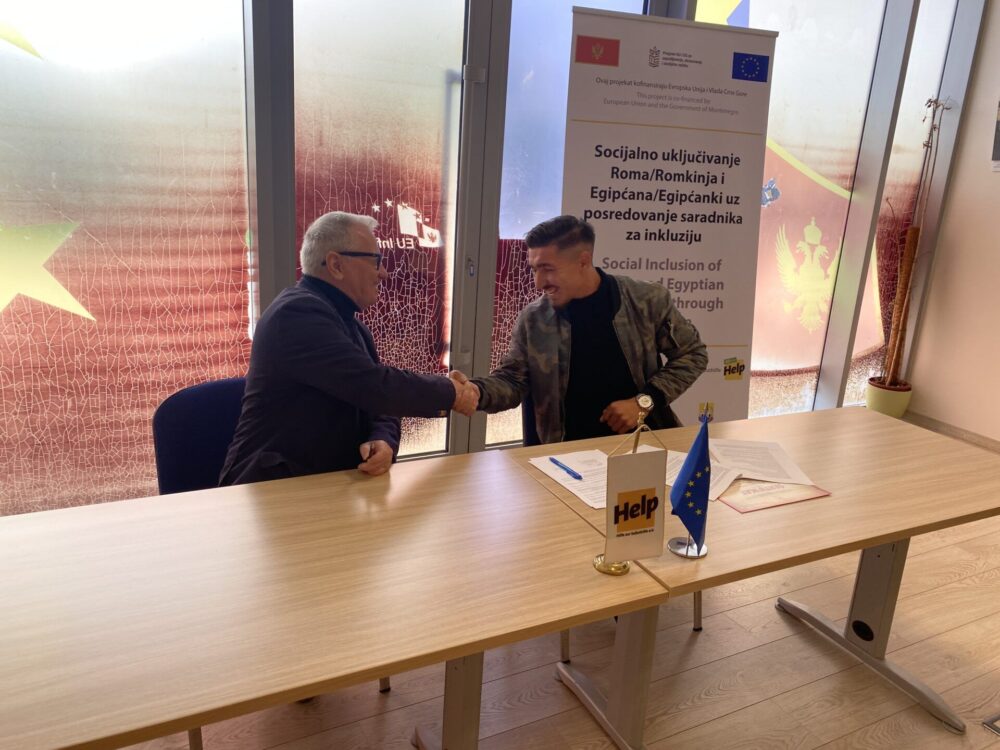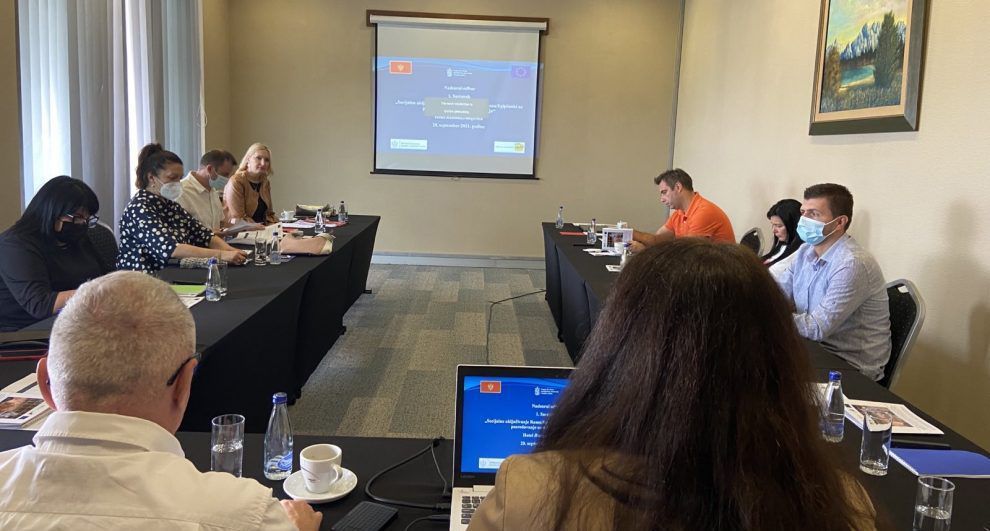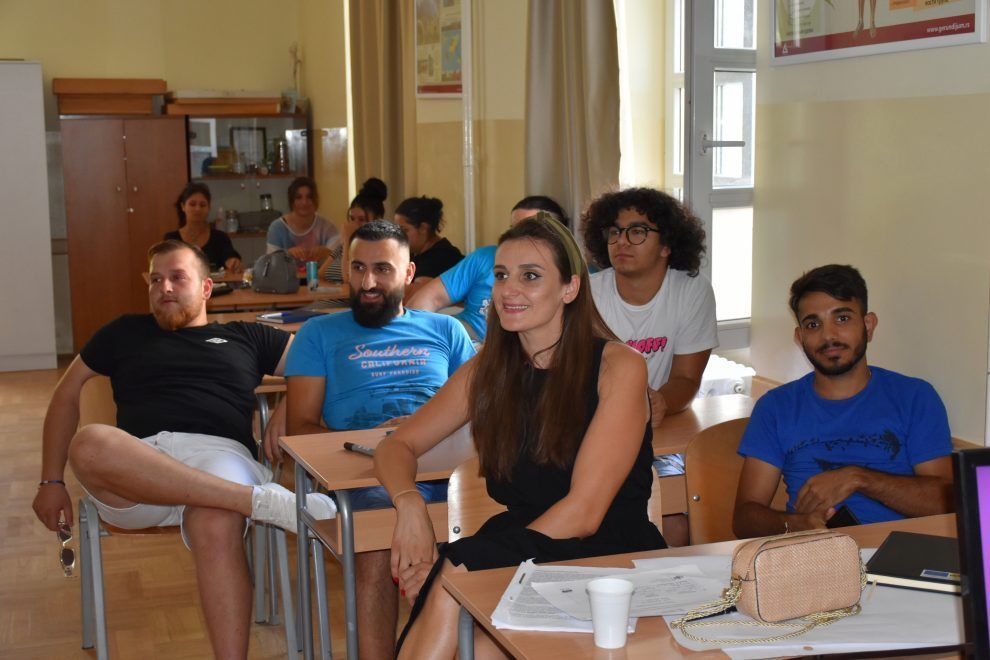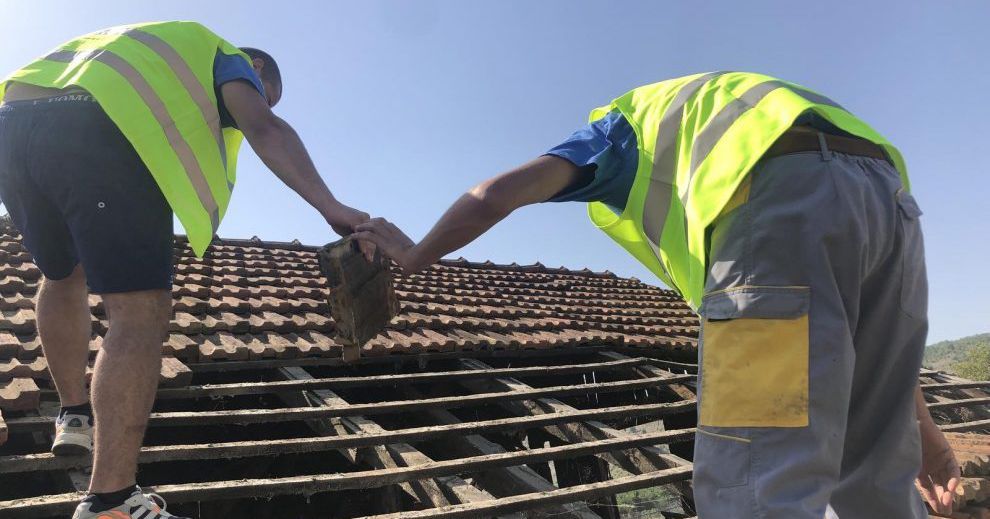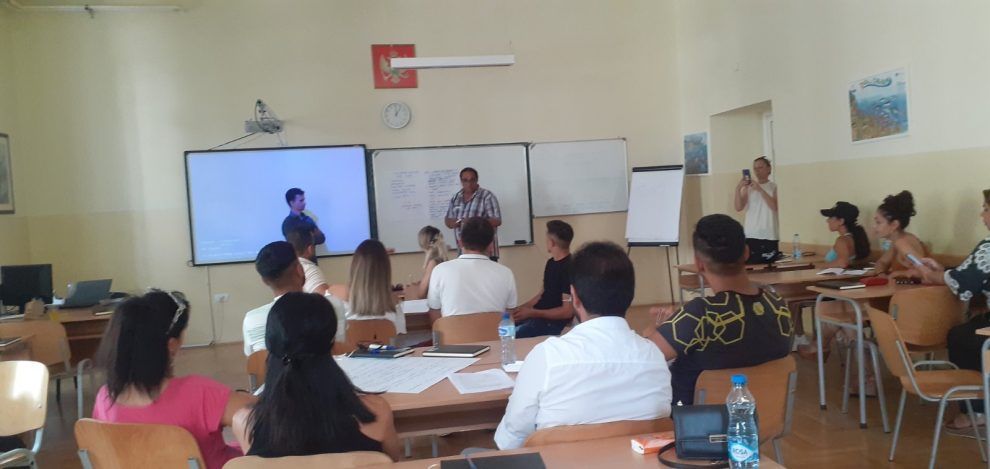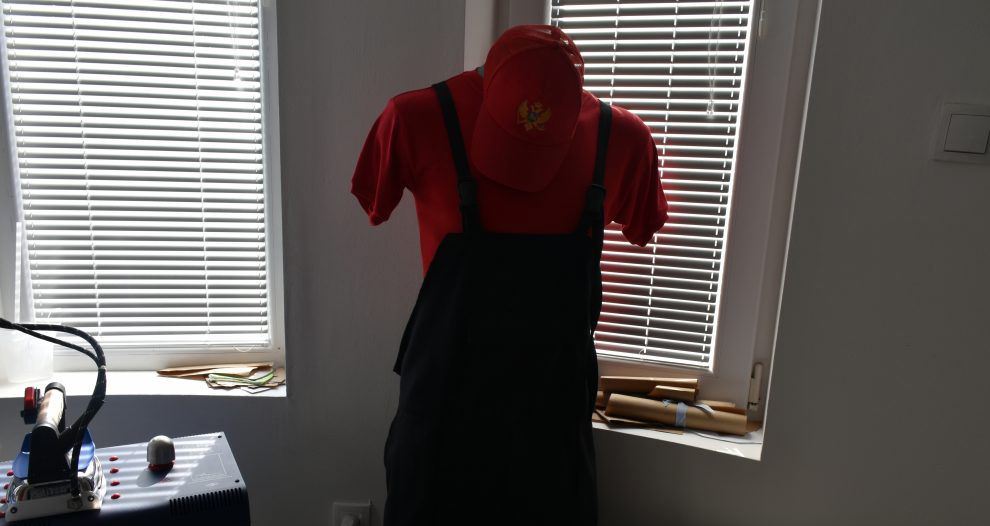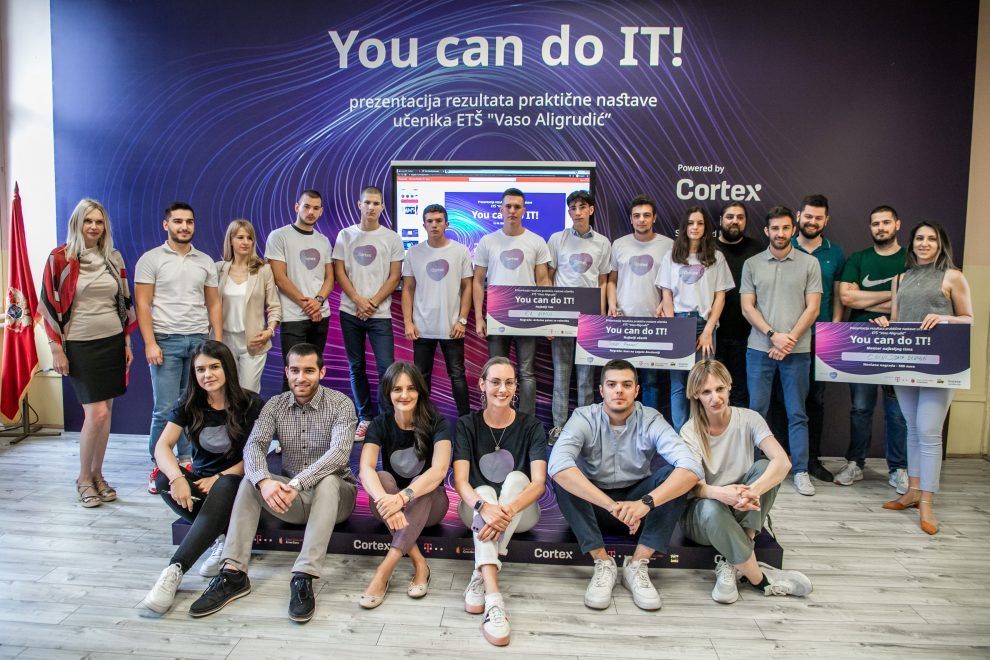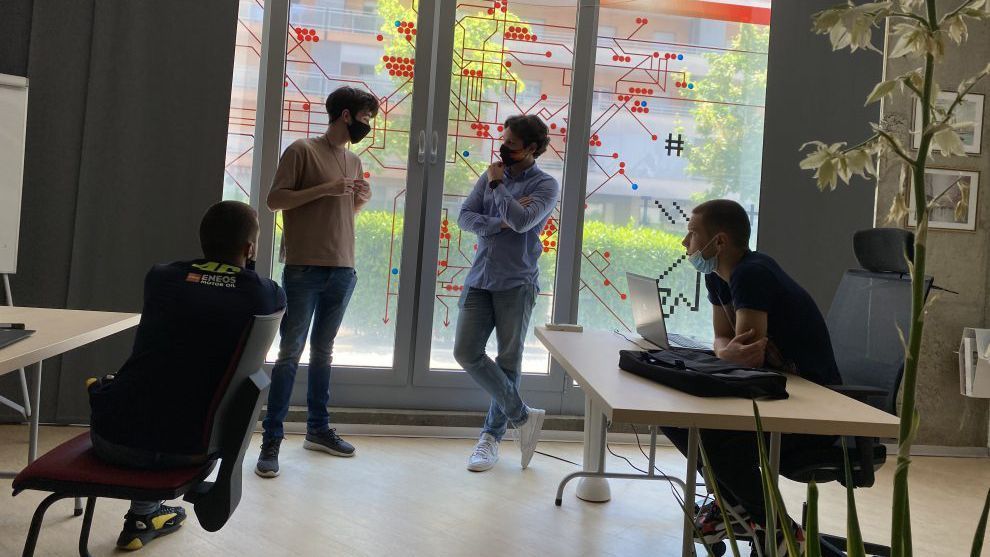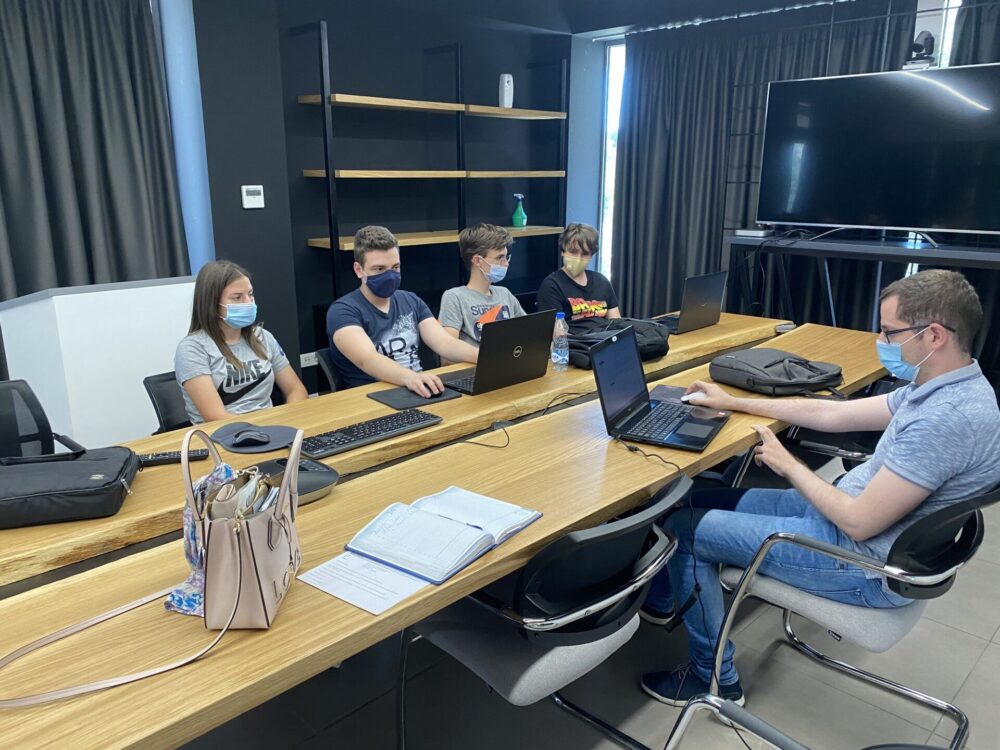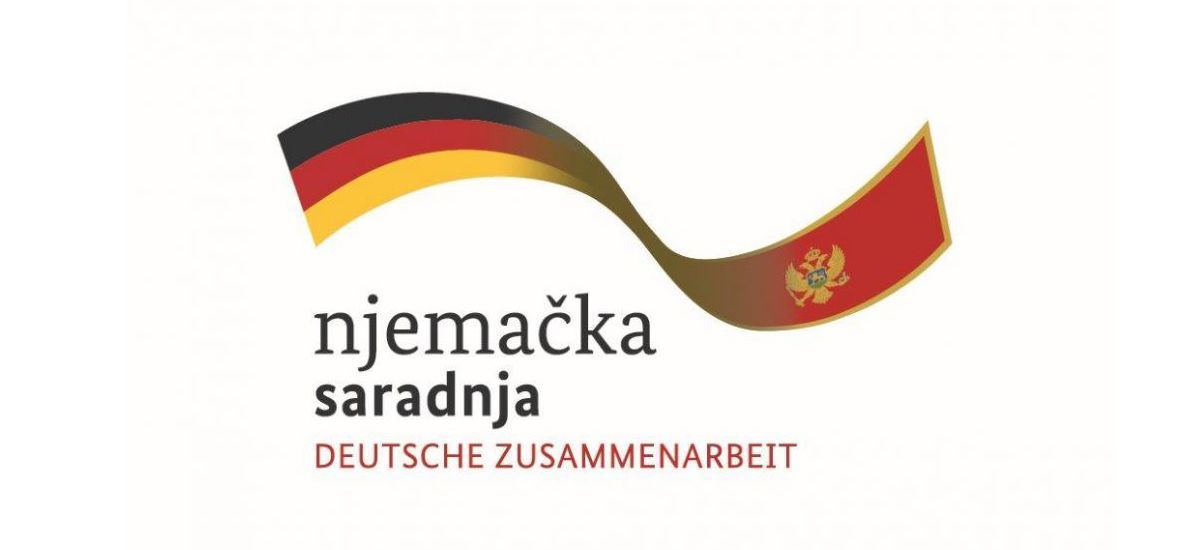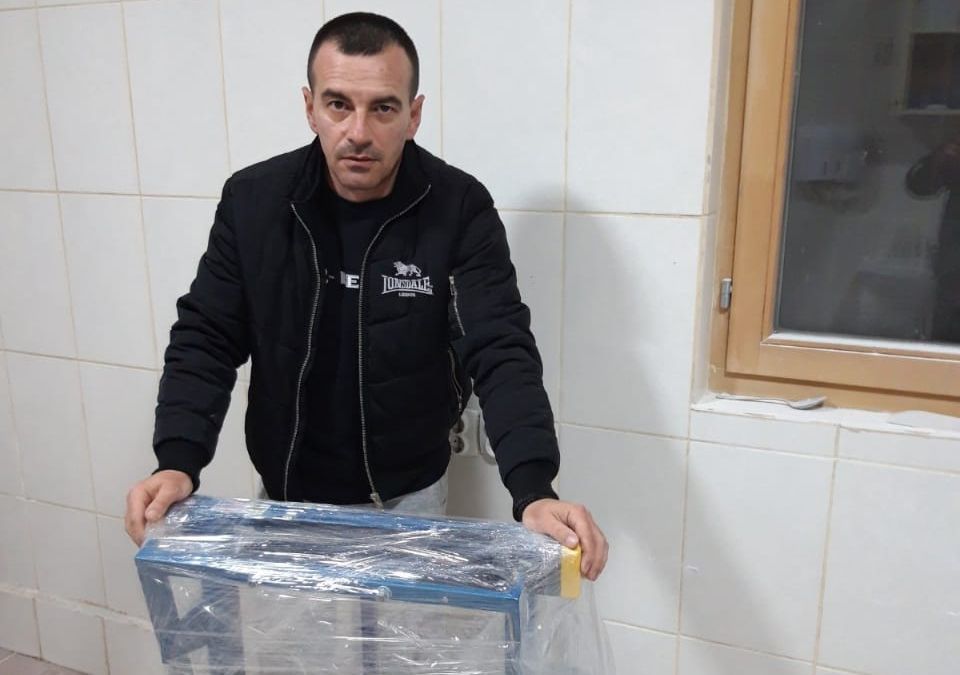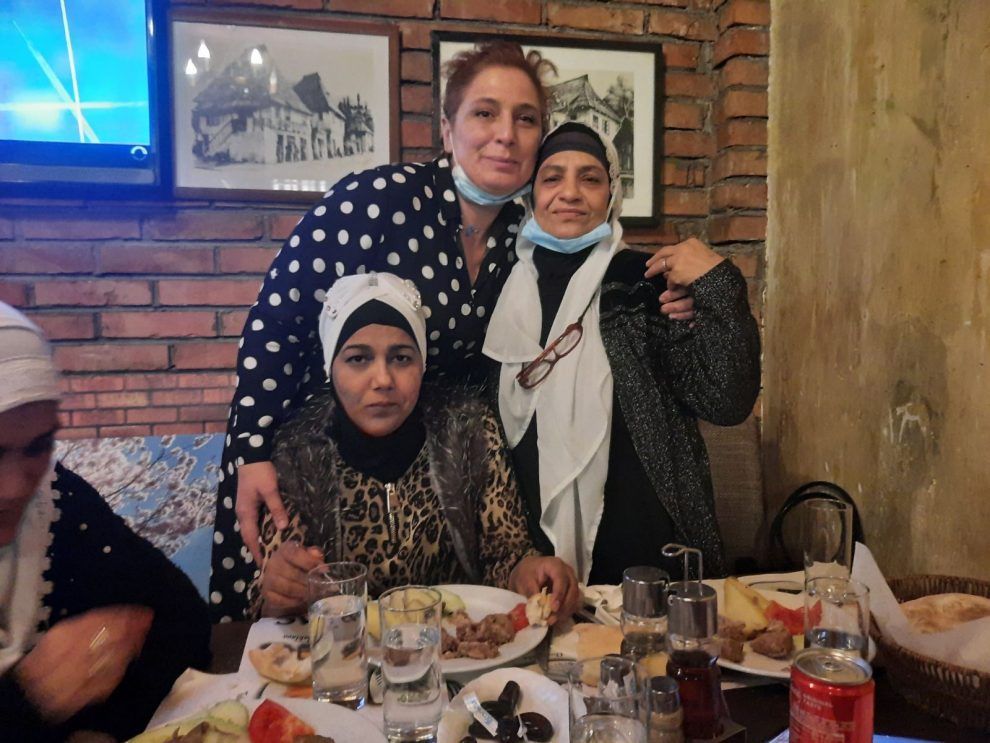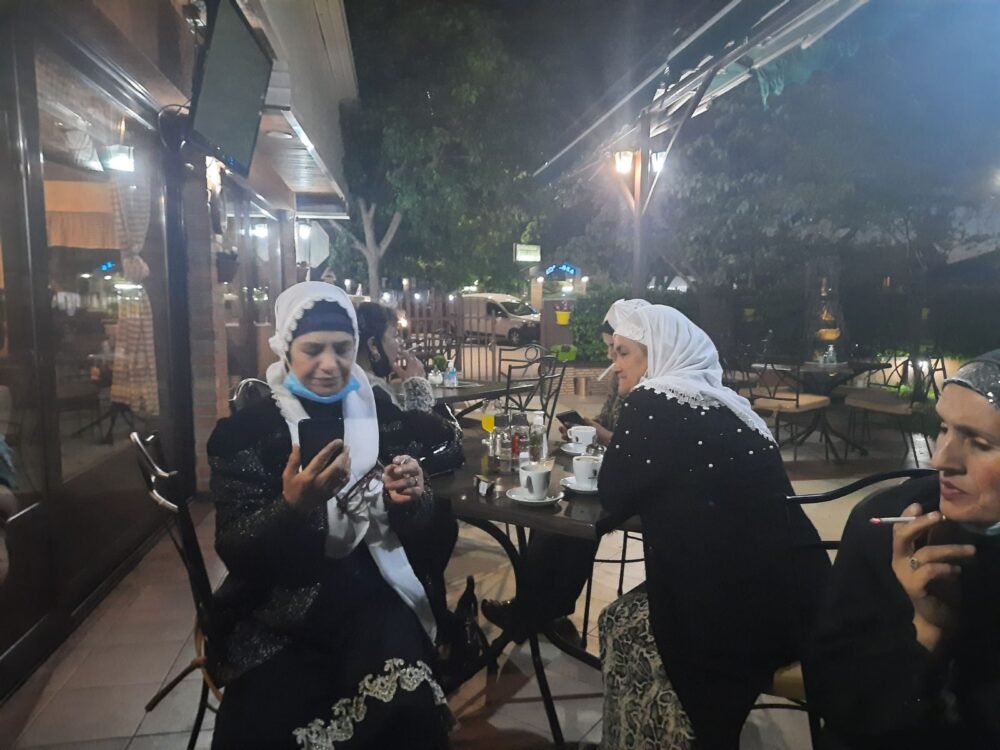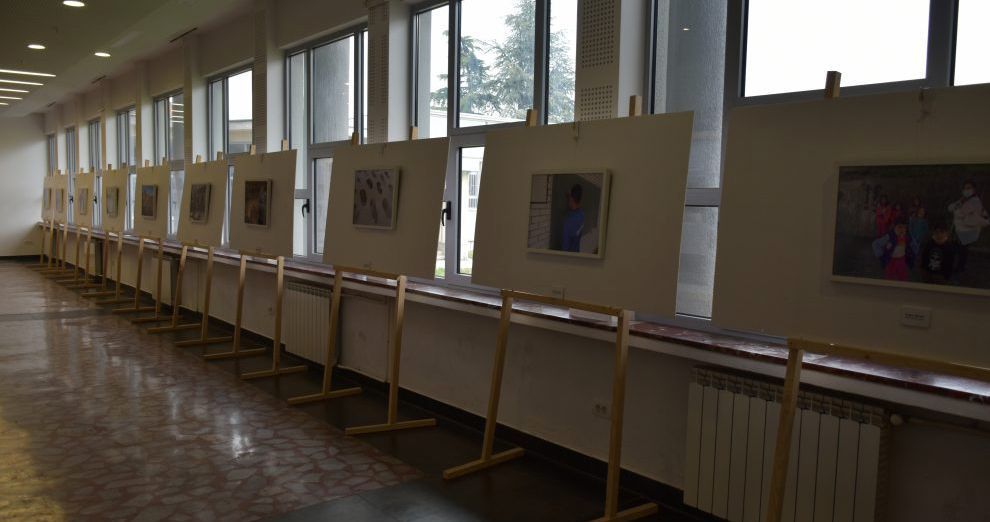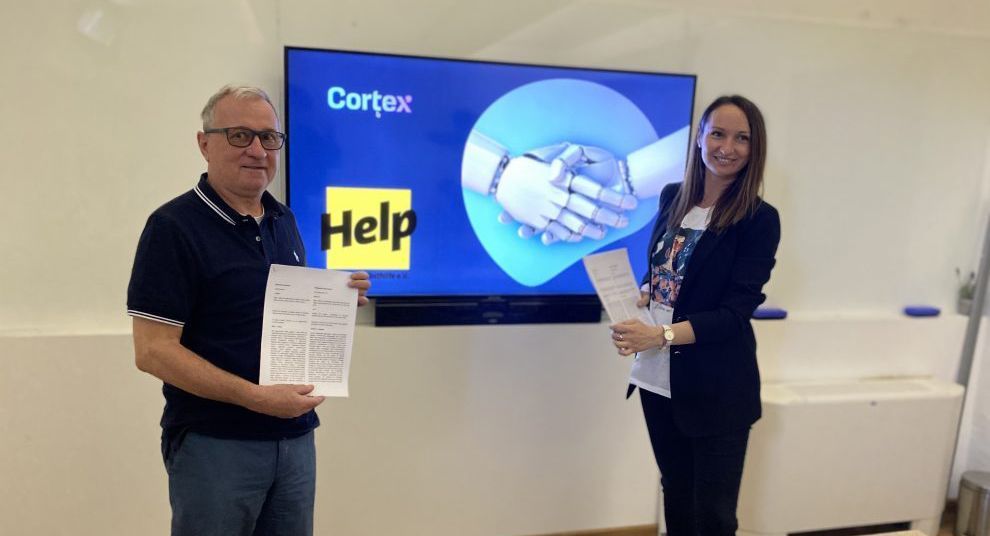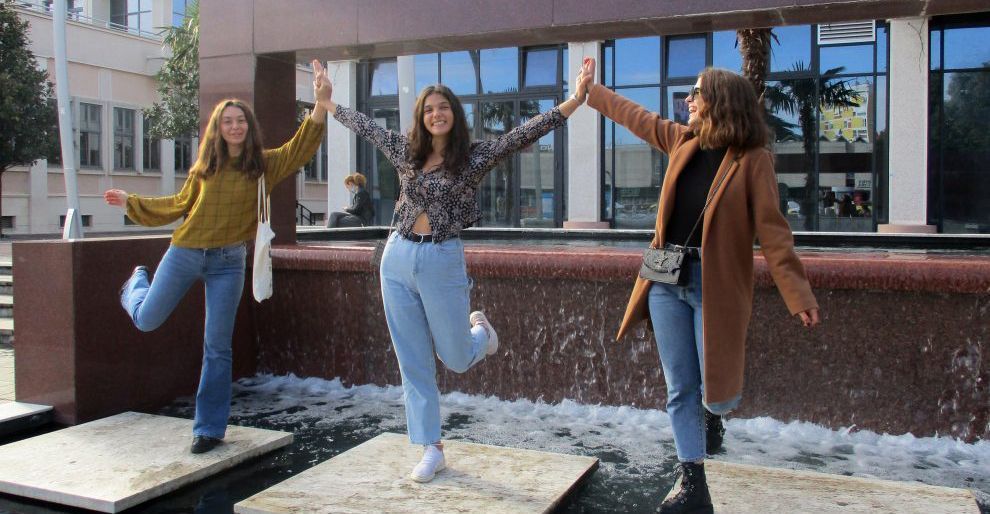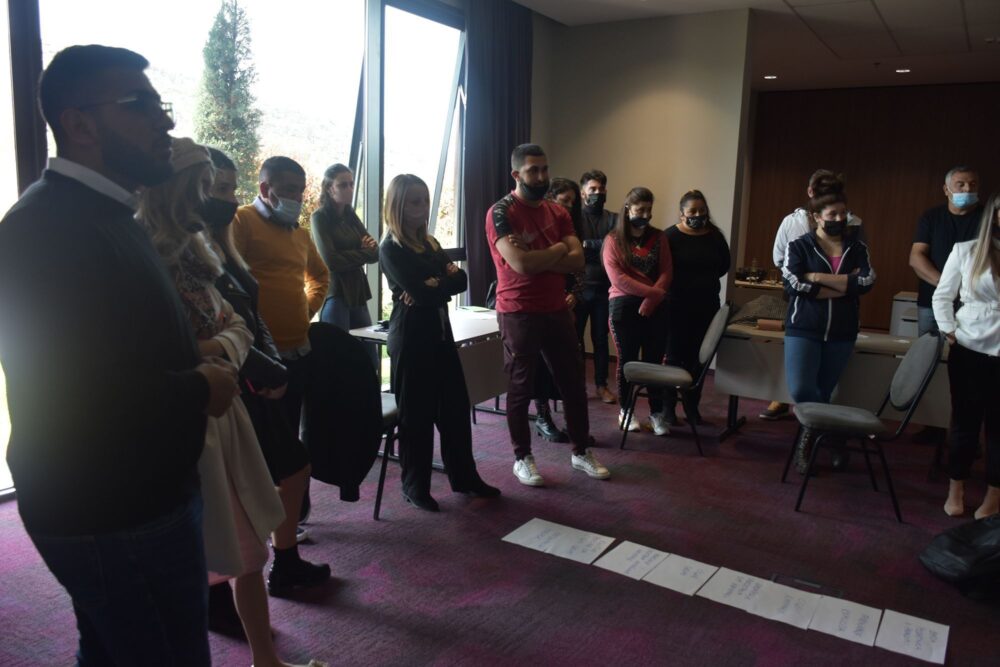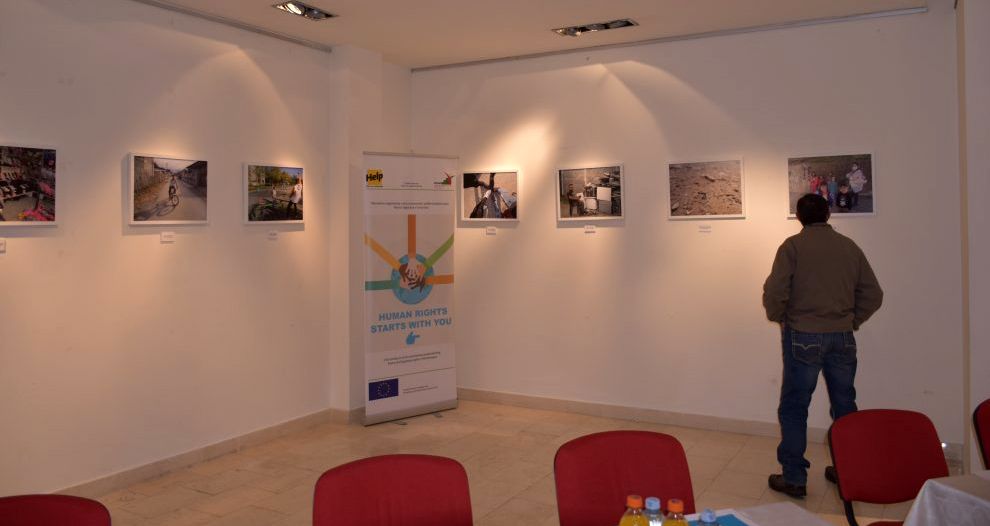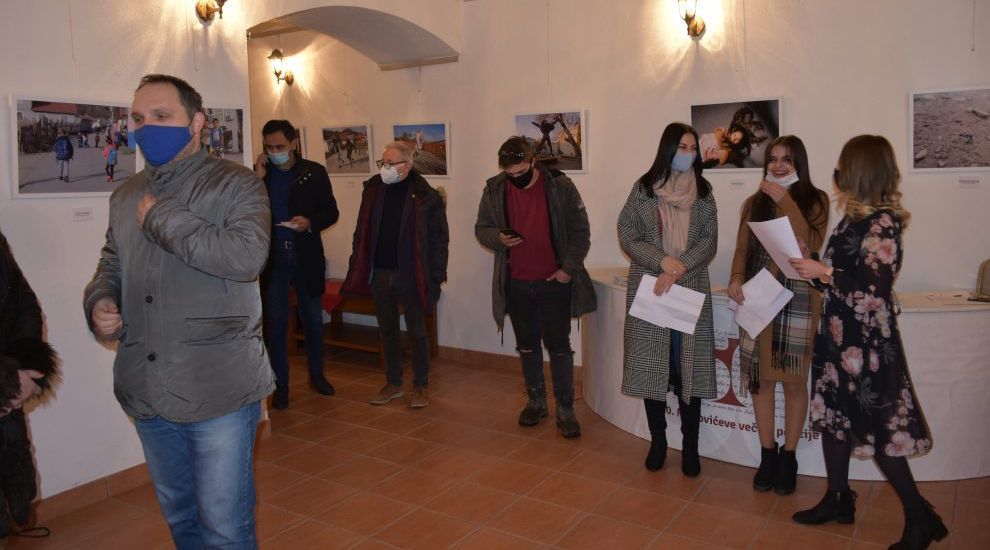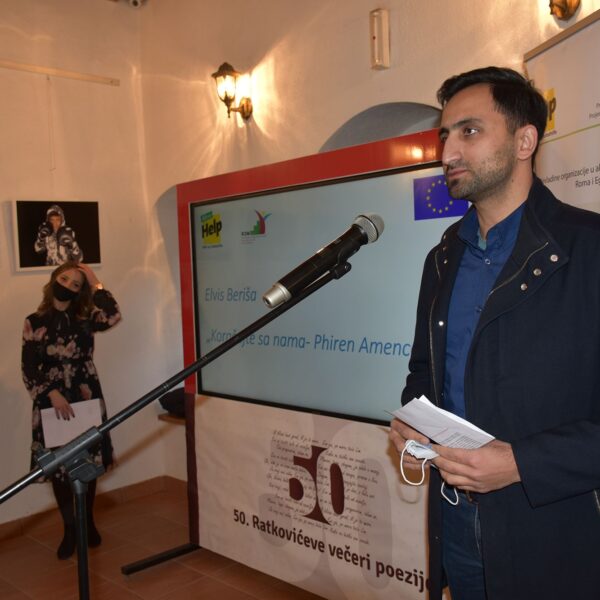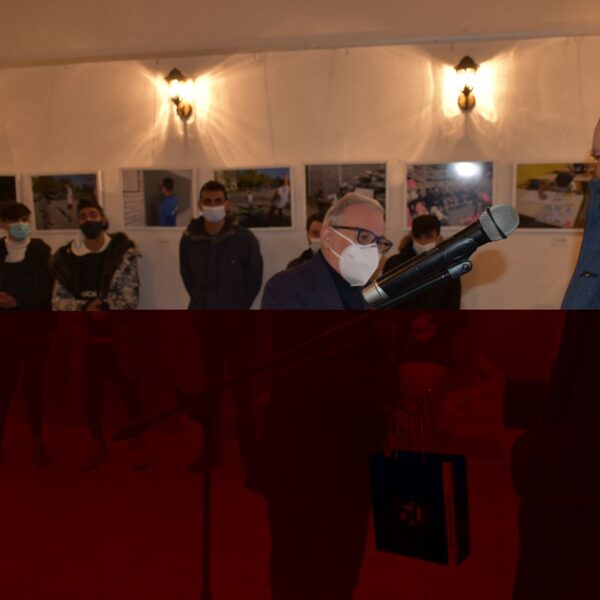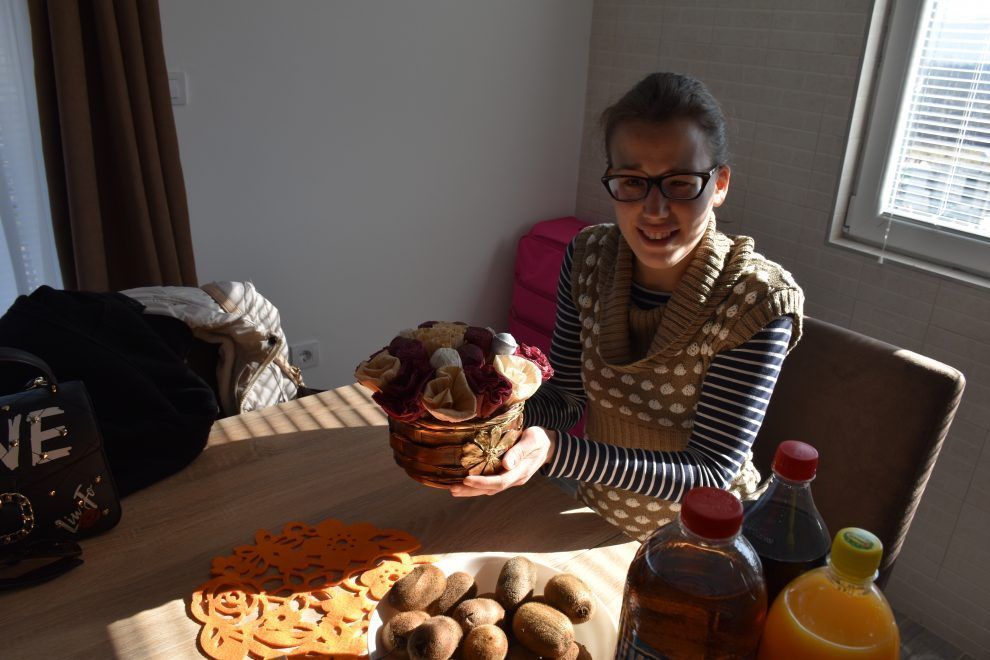Help: This was practically a pilot project, which proved to be very successful – connecting the economy, within IT technologies, with better education to raise the level of knowledge and skills. Did you have any feedback or reaction from other schools? If I’m correct, the Cortex have cooperation with the secondary vocational school from Berane?
Beg-Deljanin: Yes. So this is now a new cycle of “let’s do IT” practice that will be part of a large program of the Cortex Academy, and goes to the level of five towns in Montenegro. After a successful pilot project with the school “Vaso Aligrudić”, we decided to pursued what we wanted even before, but now we have gained some additional conditions for implementation – we have expanded to five towns. So, apart from Podgorica, we will have an internship for students from Berane, Bijelo Polje, Nikšić and Pljevlja. We mapped two schools in all these places, primarily vocational high schools, which work according to the curriculum, either or computers and network systems, or web and mobile application development specialists. They already have web programming in their curriculum and they are naturally a basic group for us, so that at that we can continue to educate them. And besides them, we also mapped gymnasiums, because about 80 percent of the staff in all IT companies come from gymnasiums, of course after college. What the gymnasiums students lack, even though they have very good work habits and responsibilities, is a narrower specialization. And like this we decided to give them the opportunity, if it is possible to realize in this school year, with all other obligations, that they also be put in place teams for practice.
I would immediately add how all of it should look like.
Applications were completed on Wednesday (December 22nd). We are still collecting lists of students with schools. In those five cities, there will be two teams of 11 from each school, maybe we will mix them up, which is something that we will adjust on the base of the number of applicants and the success of the project. Ten teams are all the total capacity of the project and ten teams will go to ten companies, as the school “Vaso Aligrudić” went last year, but now it will be more schools. It would be optimal for all nine to 10 schools to participate, for each to have its own team going to the company, to have an accompanying teacher, a mentor from the company and finally also a presentation of a technical solution at the level of five cities.
Just like last year, we will do introductory courses, but little bit expanded this year. In addition to PHP, object-oriented programming will also be in the learning process. There will be two elimination tests and then we will introduce one team from each school, which will have from five to seven students, to do the practice of working on a web application for the school library. From May to June, or July, these are only some approximate periods, but at the end of the school year- they will be organized to spend eight Sundays in companies in Podgorica, where they will work on assignment, and the rest of the week to work from home under the supervision of professors and mentors, through our software, on that task.
We also had very successful meetings with the municipalities of Berane, Bijelo Polje, Nikšić, Pljevlja and of course the Capital Podgorica, which supported the project. We will cover transport and food, ie logistics costs, to each of these municipalities, in cooperation with the municipalities.
Help: I guess you had a good feedback, both from schools and other state institutions!? Primary goal was to connect the economy and education, so that the most capable and high-quality staff would be available. Do you have the support of others from the business community?
Beg-Deljanin: The business community is behind this, because ICT Cortex is, as you know, an association of IT companies and now the membership is approaching to 20. So the economy from its side really supports this project, see the benefits. Let’s say in a percentage of 10 % it is an instant result. Because last school year, out of 30 students, three of them got some kind of engagement, either permanent or part-time, while the results for these others will be seen either next year or in three years. The staff is process mostly built over time, but the economy recognizes benefits and supporting this.
Help: Not only IT economy, but I guess in all other segments of economic development IT experts are very important, or rather to say necessary nowadays?
Beg-Deljanin: The IT industry is generally changing the structure of the labor market in all sectors. There is no longer a sector that does not need an IT expert. As far as we are concerned, we have a very good cooperation with Crnogorski Telekom, but its still belongs to the part of communications. As for some expansion, we intend to educate staff for public administration and energy sector, as well as for tourism and everything else, but now our focus is on IT companies, purely because of the resources we have.
Help: Then the formation of the Academy as part of this process comes as some logical sequence?
Beg-Deljanin: Cortex Academy is actually a slightly broader picture than the practice for high school students. The situation is more such that the practice for high school students is only one of the directions in the offer of the Cortex Academy.
The academy is one of the three main reasons why companies have come together in ICT Cortex. In general, the problem is the same – there is a lack of staff, not adequately educated, formal education needs to be upgraded and then when companies hire people, they spend a lot of time and investment in the “on boarding” process, where from the entry level, they create practically juniors. The companies themselves have been conducting additional educational programs for many years, which serve, among other things, as “on boarding”.
We have now gathered all the educational programs offered by our members under one umbrella of the Cortex Academy, where there was a single application, and the training will be conducted in companies. We have 13 educators: Alicorn, Amplitudo, Bild Sudio, Coinis, Codeus, Codepxel, Logate, Data Design, DigitalBee, Oykos Devolopment, Omnitech, Optimus Academy Samrt and Sky Sat from Herceg Novi. All has headquartered in Podgorica, except Sky Sat.
It will all last from February to July. The applications were over, he had over 1000 applications, but of course we will have to conduct some kind of selection. This will be done by the companies and I believe that it will produce a lot of new employees, because all these trainings, will get, for the best – offer for employment after the training.
And in addition, as the Cortex Academy, we have organized other courses, because the interest is really high, and not everyone can get into companies – that are in collaboration with other partners.
We will have more concrete details about it in January, but these are five major areas that accompany educational programs in the members: projects management, design, programming – which includes web applications and mobile applications and backand and frontend orientation, software testing and marketing. That will be crown of that process, after the product is finished. We currently have courses offered in companies and online and the total number of applications, as I said is 1000.
Help: ICT Cortex have participated in several important international IT events this year, including the Digital Summit, where you also achieved results. Several of your members, in cooperation with the “Vaso Aligrudić” school, have secured a significant project worth over 500. 000 Euro. Does it show the level and quality of what the cluster has achieved so far in connecting and raising the level of education and the economy?
Beg-Deljanin: Last year, in parallel with the practice, we launched an application for the Regional Challenge Fund with the school. It is about improving education through cooperative education, and given the rather strong consortium and good program, we received that grant.
So we will provide most modern equipment for the school, we have already procured computers and other tools that we need for both – work and practice, to be made by the schools its. And as part of that, there will be training for teachers. This has practically placed the Electrical Engineering School “Vaso Aligrudić” at the very top in terms of school equipment and we believe that this will really push education a few steps forward. Now the students coming from that school will be a few steps ahead of the students who are in college.
Our plan or desire is to do a similar or the same thing with other schools that cooperate with us. We will know more about details in the coming months, but in any case it is something that will be great help for schools. Because, for example, through our foundation “Doing good” we equipped the school in Nikšić, with 30 PC. When you have programming and web application development in the curriculum, it is not convenient that the equipment you are working on is outdated or non-existent and that the systems are booted up throughout school hours, so it takes so long that you practically have to write code on paper. This is definitely something that needs to change through initiatives like this, and through our work we are trying to improve schooling.
Help: I guess because of everything that has been done so far, ICT Cortex cluster also received support from the state. You have signed a cooperation agreement with the Ministry of Economic Development for three years worth 1 million Euro.
Beg-Deljanin: Yes, it is worth 1 million Euro, with half financed by the state and half invested by members who are part of Cortex.
Help: So the state (Montenegro) has recognized the interest in cooperating with you?
Beg-Deljanin: Well, yes, we are co-financed by the state, which is really a great recognition for an NGO because it shows that we have serious projects, that we are of serious interest to the economy and the state andwe are doing projects and that improve society in general.
Basically, at the beginning of December, we signed a three-year contract, within which we received support in the amount of half million Euro, and the other half a million will be invested by members. The contract is for three years with, but we hope, certainty that it will continue after those three years.
Help: We have already mentioned that the development of education in the IT sector concerns not only the IT economy and industry but also all other areas of the economy and society as a whole. You are also collaborating with Help within the RECONOMY project on one of the programs related to agricultural development. The project is currently in the research faze. What’s next?
Beg-Deljanin: Aggrotech is definitely something that is definitely well used in Europe – let’s say, a smart direction in agriculture and economy. In Montenegro, it is at a very low level. Right now, as you said, the research is ongoing. This is done by a fellow external consultant, but what I do know is that field visits are underway, that some of the results of that research are being extracted. In some companies, it is at a good level, but most of the work needs to be done on the digitalization of agriculture, let’s call it that.
I would like to mention an example – when it comes to this practice, after the end of the last pilot project, when students received from us an Arduino packages for robotics, we organized training in digital electronics at the beginning of this school year, sometime in October or November- for them to learn how to use these Arduino packages. Then, in just over a month, with an member, Optimus Academy Smart and professors from the University, they went from applied mathematics, basic logic, basic programming, electronics, to practical project design, 3D printing, etc.
And there, among the interesting projects, were invent smart fish feeders. With this we want to point out that we did not everything just for the presentation of technical skills, but we continued to work on promoting education. And we hope to continue with this project in 2022.
Help: You said that you had 1000 applications for these trainings. Does this mean that there is a bigg interest of young people in training and improvement in IT technologies?
Beg-Deljanin: There is, of course. In high schools we had a pretty good response, of course with the help of a teacher, because children are sometimes a little more passive than we would expect, but it is logical, because their head is in a variety of other things, besides school. But the response at the faculties was quite good, our hall was full there, we had a lot of inquiries both by phone and email. A lot of people are also interested in retraining or just specialization, because this is one industry that is really stable.
In this previous period, COVID proved to be practically the only one industry growing all the time, which is no longer the future but the present – and the necessary present. And which, in addition to being stable and constantly growing, is changing day by day. So specializations and lifelong learning are simply a condition to stay in the industry. We received a lot of applications from the elderly. When I say older, I mean people who were already destined for a career, because of college or school, and who now want to retrain in the IT industry, whether it’s marketing or programming .
Help: And finally, can you give us a summary for the short-term plans of the cluster?
Beg-Deljanin: In addition to the implementation of these educational programs in our companies, we are planning to monitor all these students all the time, offer some extra teaching activities, such as training for certain skills. For high school students, this has already been done last school year, and it will be the same this year. Also, when it comes to these online courses, there are two groups of people out there. Some of them who just want to specialize to improve or retrain, if they are not looking for a job – it is up to them to meet the conditions required by the course itself. If it is happening that they are looking for employment and are not in this education program, we will also offer them the opportunity to enter in our HR (human resources) database. We will be giving them a couple of months to review the course they have chosen, and then, they will get a practical task from which they will have to make a mini project so that we can then put them towards companies for the purpose of hiring or putting in the base. So when the company needed, we can get them out of the base.
Help: When it comes to these courses, not in cooperation with schools – but for the people who want to retrain or improve their skills, are the courses at your Academy affordable?
Beg-Deljanin: Yes. Most courses on our platform are for free. Courses that are certified at the national level are charged, such as a course from Oykos Development that actually corresponds to one of the module from the school curriculum, which is copied for adults, as part of the national education program. Oykos Development is certified to implement these programs and offers courses that are modular parts of its program, so it has to be paid for good reason. Logate Academy as well, because of its tradition and because of its certificates and Digital Bee which is also certified for education. These are the only courses that are for paying, and the rest of it are free of charge.
And we also have a very good support from the Capital of Podgorica. As a part of their annual scholarships, they set aside a certain part of scholarships for the IT sector, because it is recognized as a key branch of economic development. They have standard criteria, students must be on the final year of faculty with a high grade average, but they have all the courses, even those that are for paying, free of charge, with an internship in the company.
Knowledge is really accessible in this case, what worries us is the fact that people often take education offered lightly, when it is free, they appreciate it more when it is paid. However, we are working in good faith that most of them will really recognize and take seriously the opportunity we offer, because if someone just goes through education to pass it in the end, they will not be satisfied, because they will not get a formal paper and will not get a job.
Our goal is to train people, to give them value, to know how to work and how to improve their skills, and ultimately to help us all together to raise the sector to a higher level.
Help is collaborating with the ICT Coretex caster on the regional RECONOMY program.
RECONOMY is a regional inclusive green economic development program of the Swedish International Development Cooperation Agency (Sida), implemented by HELVETAS Swiss Intercooperation in partnership with others in the Eastern Partnership and Western Balkans.
Biljana Jovićević
